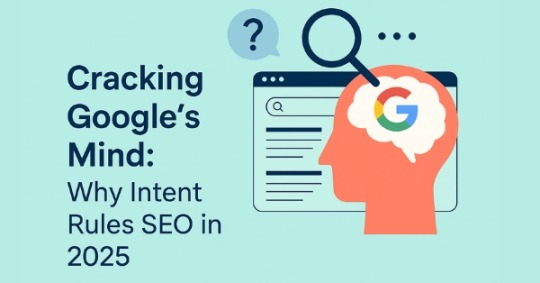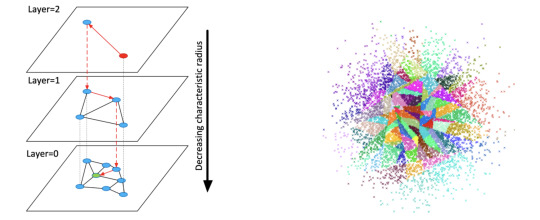#semantic search
Explore tagged Tumblr posts
Text
AI-powered Typo Hunting: Trust Your Docs, Readers Will
Our documentation has a trust problem, and I just found 142 reasons why. It started with a silly typo I noticed on one of the pages – something like “cotnact” instead of “contact”. It was quick to fix, but it got me thinking: are there more?Third‑party writing assistants are available as browser extensions, and we also have a spelling mistake checker available within Jetpack. With such tools,…
3 notes
·
View notes
Text

PRO: 3 question marks
#art#artists on tumblr#contemparyart#photography#fineart#abstract#watercolour gallery#aquarelle#concept art#grisaille#open space#semantic search#soft content#slow meaning
2 notes
·
View notes
Text

#catholic #oiko
#oikos#ecumenical#warrior cats#catholic#theology#theosophy#philosophy#semiotics#semana santa#semantic search#shadow and bone#seer#vision#my stuff#mindfulness#devil may cry#criminal minds#good omemes#wait and see#the judgment day#godzilla
9 notes
·
View notes
Text
southern germans will look you dead in the eye and say "dirty/shitty prussians" and I respect that bc being insulted as person from a no longer existing kingdom is so medieval like am I about to get chased out this bavarian village (munich) rn?get the torches ready honey
#preussen#bayern#deutschland#ichfindssowitzigsoichweissnorddeutschlandistsuperandersaberniemanddernichtdeutsch ist würde denken dass wir solchen landesinternen beef hab#germany#medieval girl#ancient girls#semantic search
5 notes
·
View notes
Text
Cracking Google’s Mind: Why Intent Rules SEO in 2025

Search engines are no longer fooled by keyword stuffing or robotic SEO hacks. In 2025, it’s all about understanding user intent—and this blog shows you exactly why. At Oddtusk, we break down how the shift from old-school keyword targeting to semantic SEO is changing the game for businesses that want to rank, resonate, and convert.
When someone types a query like “best shoes for standing all day,” Google isn’t just matching keywords—it’s interpreting context, user motivation, and search history. That’s the magic of semantic search. It’s not just about what people are typing but why they’re typing it. That’s where user intent becomes more powerful than just chasing keywords.
In this blog, we explain the different types of search intent—informational, navigational, transactional, and commercial—and how aligning your content with each type can boost rankings, reduce bounce rates, and increase conversions. By putting intent over keywords, your brand creates content that answers real questions, solves actual problems, and builds trust with both users and search engines.
We also dive into how Google’s AI-powered search (including SGE and AI Overview) rewards websites that build topical depth. This means:
Creating interlinked content clusters around specific topics
Using structured data to help machines understand meaning
Optimizing for entities (people, places, concepts) rather than vague keywords
When you shift your SEO strategy from keyword-heavy blog posts to intent-driven content ecosystems, you don’t just attract clicks—you attract qualified visitors who are ready to take action.
At Oddtusk, we believe that winning in search today means thinking like a human, not like an algorithm. That’s why our Semantic SEO approach focuses on:
Content mapping based on user journeys
Natural language optimization
Internal linking strategies that mimic how people think and explore
Whether you’re a startup trying to build visibility or an established brand ready to scale, this blog will help you rethink how SEO is done in 2025.
Here’s what you’ll learn inside:
Why intent matters more than keywords
How to build topical authority with content clusters
What semantic search signals Google is actually looking for
Actionable ways to optimize for search intent, not just search terms
0 notes
Text
Overcoming Search Challenges with NLP Powered Semantic Search
In the realm of information retrieval, traditional keyword-based search methods often face significant challenges. These include:
Lack of Context Understanding: Relevant results are frequently produced by keyword searches that are unable to understand the context of the queries.
Synonym and Polysemy Issues: Synonyms and polysemy are two terms that have different meanings but are similar enough to trick conventional search engines.
Ambiguity in Queries: Users may become frustrated by unclear inquiries as they may yield a wide range of irrelevant results
Benefits of Semantic Search with NLP
Semantic search, powered by Natural Language Processing (NLP), addresses these challenges effectively:
Contextual Relevance: Semantic search provides more precise and pertinent results by deciphering the intent and context of queries.
Synonym Recognition: NLP gives the search engine the ability to identify synonyms, guaranteeing that users can still locate what they're looking for even if they use alternative terms.
Handling Ambiguity: NLP provides more accurate answers by taking into account the context in which words are used in order to resolve ambiguities.
Choose 3RDi Search with NLP as your Search Partner
3RDi Search processes natural language queries using state-of-the-art NLP algorithms to deliver highly relevant search results. The platform is scalable to manage massive data volumes and adaptable to the unique requirements of different sectors. Real-time insights from data are provided by 3RDi Search, facilitating prompt and well-informed decision-making. Users can easily execute sophisticated searches without requiring substantial technical expertise because to the straightforward UI. In summary, semantic search combined with natural language processing is revolutionizing data interaction by improving search usability and relevancy of results. 3RDi Search stands out as a leading solution, leveraging the full potential of NLP to deliver exceptional search experiences.
1 note
·
View note
Text
Challenges in Implementing Semantic Search
Semantic search outperforms typical keyword-based search algorithms by recognizing the intent and context of user searches. However, its implementation presents various hurdles that developers and organizations must overcome to fully realize its potential. In this post, we shall investigate these difficulties in depth.
1. Natural Language Understanding (NLU)
Semantic search engines use powerful NLU skills to understand the intricacies of human language. Creating robust NLU models capable of effectively interpreting ambiguous queries and comprehending contextually relevant information remains a problem. This necessitates combining approaches from natural language processing (NLP), machine learning, and even deep learning.
2. Semantic Ambiguity
Dealing with semantic ambiguity is one of semantic search's most fundamental issues. Words and phrases may have many interpretations based on context, cultural background, or domain-specific expertise. Resolving these ambiguities correctly is critical for providing appropriate search results.
3. Data Quality and Integration
Semantic search engines require massive amounts of high-quality data to train their models properly. Integrating multiple datasets from various sources while maintaining data consistency, quality, and relevance is not an easy undertaking. Furthermore, ensuring data integrity over time presents continual issues.
4. Scalability
Scaling semantic search systems to accommodate high numbers of concurrent inquiries efficiently is another key difficulty. As the user base increases or more data is added, keeping constant performance while preserving speed and accuracy necessitates careful system design and optimization.
5. Computational Resources
The computational resources required to support semantic search engines can be significant, particularly when processing sophisticated queries or conducting large-scale data analysis. Balancing the requirement for processing capacity with cost-effectiveness is an ongoing challenge for enterprises.
6. User Expectations and Experience
Users want semantic search engines to give results that are intuitive, accurate, and rapid, similar to human understanding. Meeting these expectations necessitates ongoing refining of algorithms, user interfaces, and feedback mechanisms to improve overall user experience.
7. Evaluation and Benchmarking
Measuring the usefulness and efficiency of semantic search engines is difficult due to the subjective nature of relevance evaluations and the lack of standardized evaluation metrics. Creating strong assessment procedures and benchmarks is critical for comparing various approaches and evaluating progress over time.
8. Privacy and Ethical Considerations
With access to massive amounts of user data, semantic search poses questions regarding privacy, data security, and ethical application. It is critical to ensure regulatory compliance and the implementation of transparent data collecting, storage, and usage procedures.
Conclusion
Implementing semantic search involves navigating through various technical, operational, and ethical challenges. Addressing these challenges requires interdisciplinary collaboration, innovative solutions, and a commitment to improving the accuracy, efficiency, and fairness of semantic search systems. By overcoming these hurdles, organizations can unlock the full potential of semantic search to deliver more personalized and contextually relevant search experiences for users.
1 note
·
View note
Text
I went to dm someone and noticed it sums up their blog and was like 'omg I wonder how I'M perceived?' and I checked:

YES THAT IS MY CORE PERSONALITY ACTUALLY. YES THAT IS 80% OF MY BRAIN! so glad for this information
#spider man#stony#spider-man#I prefer the hyphen because im a nerd but most people search without it so it's better for post reach that way (yes I am into semantics)#marvel#mcu#peter parker#tony stark#steve rogers
42 notes
·
View notes
Text

two cats
#the cat is named Margot :)#my art#ocs#my ocs#oc: torchwood#manticore#sphinx#she’s a manticore but i tag her as both for searching purposes + world building semantics
36 notes
·
View notes
Text
See the real issue with TME is that it's an acronym, just like TERF, AGAB, et bloody cetera. I'm certain just spelling out transmisogyny exempt at the beginning of a Serious Post would head off a good portion of the "what's tme? i am incapable of searching out information on my own!" type comments and make it obvious that any remaining come from intellectually incurious people. Furthermore, actually spelling it out prevents it from becoming lexicalized, which is what happened to all those other acronyms, which allowed for much more semantic drift than a specific phrase otherwise would. See for instance "afab chest" to mean breasts, or the infamous "Putin is a terf". No more acronyms! Say what you mean!
#look i kinda just hate acronyms#they're semantically opaque hard to search up and lead to semantic drift#see also 'poc people' and various stupid derivatives#catgirltxt#anyways that's just how i feel about truncation#i know people are going to object with 'but length' babe you're on tumblr there's no length limit#if you're writing a long post and using it several times then sure initialize it#*after* you spell it out in full the first time you use it
7 notes
·
View notes
Text
Quest for Efficient AI: An Evaluation of the Vector Database Landscape
Earlier this year, due to soaring interest and multiple product initiatives, we went on a quest to evaluate and deploy an internally hosted vector database. We’re in the midst of the AI revolution, and many new AI-inspired product initiatives rely on vector embeddings. Embeddings are generated by AI models, and take the form of high dimensional vectors of features that represent the data in a…

View On WordPress
1 note
·
View note
Text
@ the anon in my inbox, ofc they did, we also did state in our post that they do that every time haha;;
I'm not getting into this again because it was a lot and it's been a few years, there was an updated doc with things laid out more concisely that you can find in my post about the situation on my furaffinity if u just search their username
#being vague on purpose cuz i dont wanna get into this here agaaaiinn#semantics tho it was heavy reffing not tracing#but some images did overlay almost identically so take that how you will#text#not art#dl#unsurpriiiiised#also remember the situation is years old now idk abt anything current and i dont wanna go through searching it up again
6 notes
·
View notes
Text
Today I was forced to learn that apparently "rookie stallion" is a term sometimes used to refer to NFL players and I don't know what to do with this information but I hate it so much.
#thanks so much ebay i was only trying to look for walter farley's black stallion ya book series which is about *horses*#keep your goddamn invisible 'semantically related keywords' algorithm out of my searches#it's a horrible idea and they're usually wrong
2 notes
·
View notes
Text
Let us weave in and out of structure and chaos so fluidly their pieces become ours. No one understands you perfectly, and no one ever will. That’s not a bad thing, it’s a beautiful thing. Your value is intrinsic, your perspective always changing yet unchangingly unique. Your participation is desired and your engagement a testament to your existence, the mark left in your wake. You are the legacy of what came before you and your legacy is the what that comes next. We are connected like fungi, but you are not fungi. You are human. Ignorance and brilliance rolled into one, not two simultaneous truths, but the same truth. Good communication is gorging yourself on that truth, fuel burnt to forge connection with that which lies beyond, the greater sum of our parts. We cultivate creation and performance to express what cannot be said simply, convey that which is too complex to fit in a box, wrapped up neatly and tied off with a bow. Trying to engage, interact, express, make visible, make real not just what is, but what’s been, and what may be. This is what I see, this is what I know, this is what it means to me. Do you see what I mean? Does this mean anything to you? What does it mean? I do not have all the answers, yet I am more than willing to bend to the will of those who will dance with me. I am both art and artist, creator and creation, the undead corpse of an auteur; decay existing as an extant form of life.
The Art of Semantics, AnRel
#does this mean anything to you gets me emotional hjsadkfi#anrel#semantics#linguistics#words#also im 90% sure ive posted this excerpt but i can't see it from searching 'anrel' on my blog so
3 notes
·
View notes
Text
Reading about media reactions vs social media reactions to the Titanic submersible is simultaneously hilarious and makes you want to interrogate the next journalist you come across on their reading comprehension. Newspapers were getting SO MAD that people were making fun of the deaths of five rich guys on a sub. But, like, first off: they chose to be there. You don’t hear people bemoaning the tragedy of the people who died on Everest because they knew what they were doing was dangerous and entirely unnecessary. Second, the CEO was basically asking for trouble. His death was less of a tragedy and more of a nomination for the Darwin Award. He literally said, AND I QUOTE,
“At some point, safety just is pure waste.”
Which ties into the third thing, which is that the US and Canadian governments spent far too long looking for five rich guys on a submersible when less than a week earlier a boat full of immigrants sank off the coast of Greece and NO ONE GAVE A SHIT. The media certainly didn’t seem to care, but they swarmed the Titan implosion like a pack of wolves. So, I dunno, maybe the “lack of empathy” we showed towards the wreck of the Titan had nothing to do with people on the Internet being assholes and everything to do with double-standards and the fact that we’re footing the bill for rich people’s stupidity with both our own money and our lives. Hell, I’d even argue WE weren’t the ones showing a lack of empathy.
#titan submersible#titan implosion#tw death#eat the rich#messenia migrant boat disaster#technically according to the rules of the darwin award the ceo wouldn't be considered even applicable#because if your stupidity caused the deaths or permanent injury of innocent bystanders you're automatically disqualified#because the people you killed could've positively contributed to the gene pool if you hadn't been such an idiot#but semantics#seriously though#if the deaths of five guys who chose to be on a sub they knew was experimental#is considered more tragic than the deaths of hundreds#then there might be a bit of an issue there#also the coast guard isn't allowed to release the cost of the search mission OR accept reimbursement#which might also be a bit of a problem given that rich assholes make up like 70% of the people whose asses the coast guard has to save#especially bc the coast guard is WAY underfunded#and could really use the extra money
3 notes
·
View notes
Text
Does Clean Code Improve SEO? A Web Designer’s Perspective
[et_pb_section fb_built=”1″ _builder_version=”4.27.4″ _module_preset=”default” global_colors_info=”{}”][et_pb_row _builder_version=”4.27.4″ _module_preset=”default” global_colors_info=”{}”][et_pb_column type=”4_4″ _builder_version=”4.27.4″ _module_preset=”default” global_colors_info=”{}”][et_pb_text _builder_version=”4.27.4″ _module_preset=”default” hover_enabled=”0″ global_colors_info=”{}”…
#accessible web design#clean code SEO benefits#crawlable code#fast-loading websites#minimal HTML markup#mobile-first SEO#page speed optimization#search engine indexing#semantic HTML#SEO-friendly web design#structured website content#technical SEO#web designer SEO tips#web development best practices#website performance SEO
0 notes